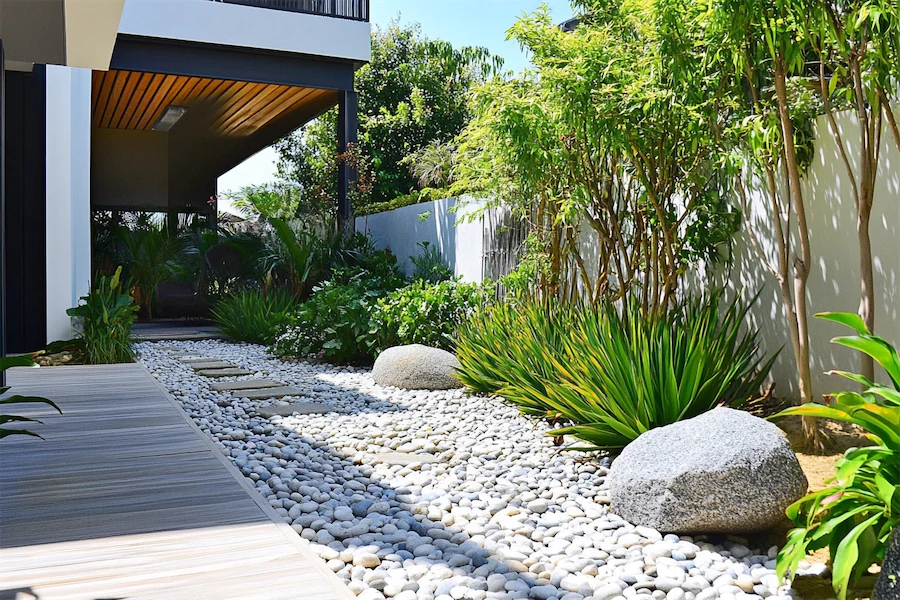A minimalist Zen garden, or karesansui, is a refined Japanese landscape designed to encourage meditation and introspection. By employing simplicity and intentionality, these gardens create serene spaces that embody the essence of nature through minimalistic elements.
History and Origins of Minimalist Zen Gardens
Originating in Japan during the 7th century, Zen gardens were influenced by Chinese landscape paintings and the principles of Zen Buddhism. Monks crafted these dry landscapes to serve as meditation aids, using rocks, gravel, and sand to symbolize natural elements like mountains and water. The minimalist approach reflects the Zen philosophy of simplicity and mindfulness.
Key Features of Minimalist Zen Gardens
Minimalist Zen gardens are characterized by several distinctive features:
- Simplicity (Kanso): Emphasizing the elimination of unnecessary elements, the design focuses on essential components to create a tranquil atmosphere.
- Naturalness (Shizen): The garden’s elements are arranged to appear organic and unforced, fostering a sense of harmony with nature.
- Asymmetry (Fukinsei): Avoiding perfect symmetry, the design embraces irregularity to reflect the imperfect beauty of the natural world.
- Symbolism: Raked gravel represents water, while strategically placed rocks symbolize mountains or islands, creating a miniature landscape that invites contemplation.
Applications of Minimalist Zen Gardens
Minimalist Zen gardens can be adapted to various settings:
- Residential Spaces: Homeowners can create small-scale Zen gardens in courtyards or backyard corners, providing personal retreats for relaxation and meditation.
- Public Spaces: Parks and cultural institutions may incorporate Zen gardens to offer visitors peaceful environments for reflection.
- Corporate Environments: Businesses can integrate Zen garden elements into office designs to promote calmness and enhance employee well-being.
Considerations When Designing a Minimalist Zen Garden
When planning a minimalist Zen garden, consider the following:
- Material Selection: Choose natural materials like rocks, gravel, and sand to maintain authenticity and support the garden’s symbolic elements.
- Scale and Proportion: Ensure that the size of each element is balanced, creating a cohesive and harmonious composition.
- Maintenance: Regularly rake gravel to maintain patterns and remove debris, preserving the garden’s pristine appearance.
Conclusion
Minimalist Zen gardens offer serene spaces that embody simplicity and mindfulness. By thoughtfully incorporating essential elements and adhering to Zen principles, these gardens provide tranquil environments conducive to meditation and inner peace.
